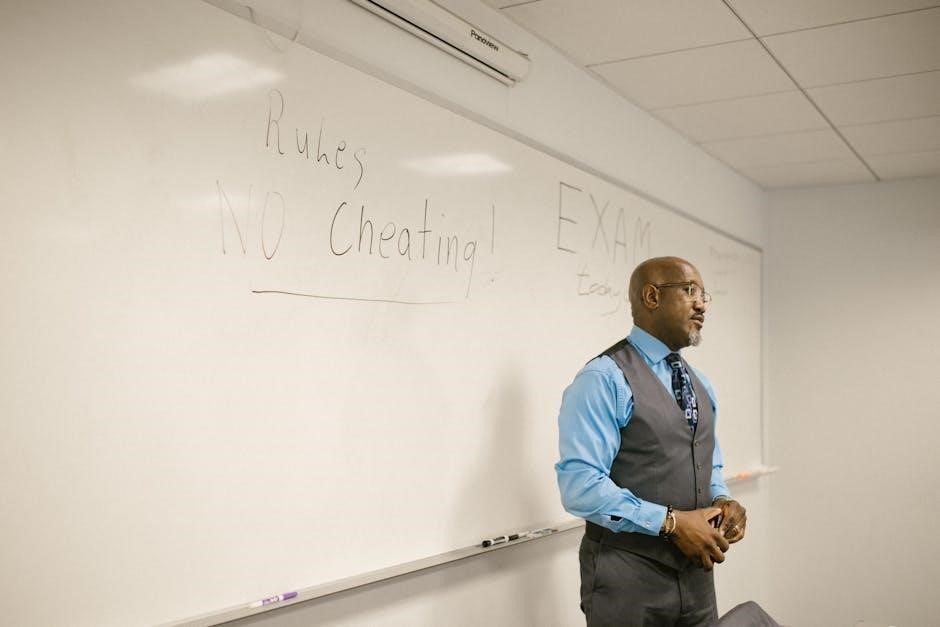Okay, here’s some content for the specified section, adhering to all requirements:

In-School Suspension (ISS): A Comprehensive Overview
In-school suspension (ISS) is a disciplinary measure employed by schools as an intervention for challenging behavior. It serves as an alternative to out-of-school suspension, aiming to improve the school atmosphere and provide a structured environment.
Definition and Purpose of In-School Suspension
In-school suspension (ISS) represents a disciplinary strategy where students are temporarily removed from regular classroom activities but remain within the school building. This intervention addresses behavioral violations of school discipline policies. The primary purpose of ISS is to provide a structured and supervised setting for students to reflect on their actions and complete assigned academic work. It aims to minimize disruption to the learning environment for other students while ensuring the suspended student continues their education. ISS also serves as a deterrent to future misbehavior by providing consequences for rule infractions. Ultimately, ISS seeks to improve student conduct and promote a positive school climate. This approach is intended to be a step to improve the overall school atmosphere.
Legal and Policy Framework for ISS
The implementation of in-school suspension (ISS) is governed by a legal and policy framework that ensures fair and consistent application. School districts are required to have student engagement policies that outline disciplinary procedures, including ISS. These policies must align with state education laws, such as Education Law 3214 in New York, which dictates suspension guidelines. District discipline policies must define behavioral violations that warrant ISS and specify the maximum suspension length for different misconduct types. Furthermore, policies should detail student rights, due process procedures, and appeal processes related to ISS assignments. The U.S. Department of Education also provides guiding principles to help schools create equitable and effective discipline policies.

Implementation of ISS Programs
Successful ISS programs require careful planning and execution. This includes establishing clear policies, providing adequate staff training, and ensuring the program aligns with the school’s overall disciplinary goals and educational objectives.
Developing Effective ISS Policies
Developing effective ISS policies requires a collaborative approach, involving administrators, teachers, parents, and students. Policies should clearly define the purpose of ISS, outlining specific behavioral infractions that warrant placement and the duration of assignments. A continuum of intervention strategies must be included in the policy.
The policy should address student rights and due process, ensuring fair and equitable application. Furthermore, the policy must detail the educational component of ISS, describing the academic support and behavioral interventions provided. Regular review and revision of the policy are crucial to maintaining its effectiveness and relevance.
Finally, the policy should be readily accessible to all stakeholders.
Components of a Successful ISS Program
A successful ISS program comprises several key components, starting with a structured learning environment that minimizes distractions and promotes academic engagement. Individualized learning plans should be implemented, addressing students’ specific academic needs and providing opportunities for skill development. Furthermore, there should be clear expectations for behavior and consequences for non-compliance.
Counseling and behavioral interventions are essential, focusing on addressing the root causes of misbehavior and teaching students alternative coping strategies. Staff training is also a critical component of a successful ISS program to ensure proper implementation.
Finally, it’s important to have a reintegration plan back into the classroom.
Staff Training and Roles in ISS
Effective staff training is paramount for a successful In-School Suspension (ISS) program. Educators and support personnel involved in ISS need comprehensive training on behavior management techniques, conflict resolution strategies, and de-escalation methods. A clear understanding of school discipline policies, student rights, and due process is crucial for fair and consistent implementation.
Staff roles in ISS typically include supervision, academic support, and behavioral intervention. Supervisors maintain order, ensure student safety, and enforce program rules. Teachers provide academic assignments, offer assistance, and monitor student progress. Counselors deliver individual or group counseling.
Also, understanding trauma-informed practices is critical.

Student Considerations in ISS
When assigning In-School Suspension (ISS), schools must consider student rights and due process. Addressing behavioral issues effectively requires understanding the reasons behind the behavior and implementing supportive interventions in a fair manner.
Criteria for Assigning ISS
The criteria for assigning In-School Suspension (ISS) should be clearly defined within the school’s discipline policies. ISS is typically reserved for behavioral violations that disrupt the learning environment or violate school rules, but do not warrant out-of-school suspension or expulsion. Factors considered often include the severity of the infraction, the student’s disciplinary history, and any mitigating circumstances.
Schools should strive for consistency and fairness in applying these criteria. Some districts outline specific offenses that automatically lead to ISS, while others grant administrators discretion. A continuum of intervention strategies should be in place, with ISS being one step in addressing student behavior.
Student Rights and Due Process in ISS
Students facing In-School Suspension (ISS) retain certain rights to due process, ensuring fair treatment. Schools must adhere to district policies, which align with Education Law. Students and families should receive clear information about discipline policies and procedures, including reasons for ISS assignment.
While formal hearings may not always be required for ISS, schools should provide students an opportunity to explain their actions. Parents should be notified of the ISS assignment and the reasons behind it. The school’s Student Engagement Policy should outline these rights, promoting transparency and accountability in the disciplinary process. This ensures a fair educational environment.

Addressing Behavioral Issues in ISS
In-School Suspension (ISS) should not be solely punitive; it should address the root causes of student misbehavior. Schools should utilize ISS as an opportunity to provide targeted interventions. Counseling services, if available, can help students understand and manage their behavior.
Positive Behavioral Interventions and Supports (PBIS) can be integrated into the ISS setting. Restorative justice practices can also be incorporated to promote accountability and repair harm. The goal is to help students develop strategies for making better choices in the future, fostering a positive change in behavior and reducing future disciplinary actions within the school.

Alternatives to and Complements of ISS
Alternatives include PBIS, restorative justice, and counseling. These strategies aim to address behavior comprehensively. They can reduce reliance on ISS and foster a positive school climate for students to learn.
Positive Behavioral Interventions and Supports (PBIS)
Positive Behavioral Interventions and Supports (PBIS) is a proactive framework that schools use to create a positive and safe learning environment. PBIS focuses on teaching and reinforcing positive behaviors, rather than solely relying on punitive measures like in-school suspension. This approach involves establishing clear expectations for student conduct, providing targeted support for students who struggle to meet those expectations, and using data to monitor the effectiveness of interventions. By implementing PBIS, schools can reduce behavioral problems, improve academic outcomes, and create a more inclusive and supportive school culture, ultimately minimizing the need for disciplinary actions like ISS;
Restorative Justice Practices
Restorative justice practices offer an alternative to traditional disciplinary measures like in-school suspension, focusing on repairing harm and rebuilding relationships. These practices emphasize dialogue, empathy, and accountability, encouraging students to take responsibility for their actions and understand the impact on others. Restorative justice brings together those who have been harmed and those who caused the harm to collaboratively address the situation. This may involve facilitated conversations, conflict resolution strategies, and agreements to make amends. By focusing on repairing relationships and promoting understanding, restorative justice can create a more positive and supportive school climate, reducing reliance on punitive discipline.
Counseling and Support Services
Counseling and support services play a crucial role in complementing and offering alternatives to in-school suspension. These services address the underlying causes of student misbehavior, promoting positive behavioral changes. School counselors can provide individual and group counseling, helping students develop coping mechanisms, manage emotions, and improve social skills. Support services may include mentoring programs, conflict resolution training, and access to mental health resources. By addressing the root causes of behavior issues, counseling and support services equip students with the tools they need to succeed academically and socially. These services can also help create a more supportive and inclusive school environment, reducing the need for disciplinary measures.

Evaluation and Effectiveness of ISS
Evaluating the effectiveness of ISS programs involves data collection and analysis to measure its impact on school climate. This includes assessing changes in student behavior, suspension rates, and academic performance to improve the program.
Data Collection and Analysis
Effective evaluation of In-School Suspension (ISS) programs relies heavily on systematic data collection and rigorous analysis. Schools should track various metrics, including the frequency of ISS assignments, the reasons for placement, and the demographics of students involved. Analyzing this data helps identify patterns and trends, revealing potential disparities in application or areas where the ISS program may be disproportionately affecting certain student groups.
Furthermore, schools need to monitor recidivism rates within the ISS program, tracking how often students are repeatedly assigned to ISS. This information provides insights into the program’s effectiveness in addressing underlying behavioral issues and preventing future infractions. Detailed records of student behavior, academic performance during ISS, and any follow-up interventions are also crucial for a comprehensive analysis. Regular review of this data allows schools to make informed decisions about program adjustments and improvements.
Measuring the Impact of ISS on School Climate
Assessing the impact of In-School Suspension (ISS) on school climate requires a multifaceted approach. Schools should gather data on overall suspension rates, both in-school and out-of-school, to determine if ISS is effectively reducing the need for more severe disciplinary actions. Surveys administered to students, teachers, and parents can provide valuable insights into perceptions of safety, order, and fairness within the school environment.
Furthermore, monitoring indicators such as attendance rates, instances of bullying or harassment, and the number of disciplinary referrals can help gauge the broader effects of ISS. Analyzing these metrics alongside qualitative data, such as feedback from focus groups or interviews, offers a comprehensive understanding of how ISS influences student behavior, staff morale, and the overall sense of community within the school. Positive changes in these areas suggest a beneficial impact of ISS on the school climate.
Continuous Improvement of ISS Programs
The continuous improvement of In-School Suspension (ISS) programs necessitates a cyclical process of evaluation, reflection, and adjustment. Regularly analyze data related to student behavior, suspension rates, and academic outcomes to identify areas where the ISS program can be enhanced. Seek feedback from students, teachers, and parents to gain diverse perspectives on the program’s effectiveness and areas for improvement.
Based on the data and feedback collected, implement targeted changes to the ISS program, such as refining disciplinary procedures, enhancing academic support, or providing additional staff training. Monitor the impact of these changes through ongoing data collection and feedback mechanisms. This iterative process ensures that the ISS program remains responsive to the evolving needs of students and the school community, maximizing its positive impact on student behavior and school climate.

Examples of School Discipline Policies
School discipline policies vary, with some emphasizing zero-tolerance approaches leading to suspensions. Alternatives, like restorative justice, aim to address behavior through understanding and repairing harm caused within the school community.
Zero-Tolerance Policies and Their Impact
Zero-tolerance policies gained prominence as a means to ensure school safety and maintain order, often leading to mandatory suspensions or expulsions for specific offenses. A landmark zero-tolerance policy set a precedent for schools to implement strict disciplinary practices. These policies, while intending to deter misbehavior, have faced criticism for their potential impact on students.
Studies suggest that zero-tolerance approaches can disproportionately affect minority students and may not effectively address the root causes of behavioral issues; The inflexibility of these policies can sometimes result in unfair or excessive punishments. Schools are encouraged to carefully consider the consequences of zero-tolerance policies.
Alternatives to Suspension
Recognizing the potential drawbacks of traditional suspension, many schools are exploring alternative disciplinary approaches that focus on rehabilitation and restorative practices. These alternatives aim to address the underlying causes of misbehavior. Positive Behavioral Interventions and Supports (PBIS) is one such approach, emphasizing proactive strategies to promote positive behavior and prevent disciplinary issues.
Restorative justice practices offer another alternative, focusing on repairing harm and building relationships. Counseling and support services play a crucial role in helping students address emotional and behavioral challenges. Schools are encouraged to implement a continuum of intervention strategies to support student growth and development.

Resources and Further Information
For more in-depth understanding, consult Department of Education guidelines. Explore sample ISS policies and procedures available online. These resources offer valuable insights for effective implementation and continuous improvement of school discipline.

Department of Education Guidelines
The U.S. Department of Education provides guiding principles for maintaining effective school discipline. These guidelines emphasize fair and equitable practices, crucial for in-school suspension (ISS) programs. Examining documents from the Office of Civil Rights is essential for ensuring compliance. These resources address student rights and due process within disciplinary actions, offering insights into legal and policy frameworks. School districts must also adhere to state-specific regulations regarding student conduct and discipline policies. Clear information about school rules and suspension policies should be readily available to students, families, and community members. These guidelines promote positive school climates while addressing behavioral issues effectively. Further research into federal and state educational policies is encouraged.
Sample ISS Policies and Procedures
Accessing sample in-school suspension (ISS) policies and procedures is crucial for developing effective disciplinary programs. These samples demonstrate how schools structure their ISS programs, defining clear rules and expectations. Reviewing these documents provides insights into various approaches for managing student behavior. Typically, these policies outline the criteria for assigning ISS, student rights, and the duration of the suspension. They also detail the procedures for readmission and any support services provided during ISS. Examining examples from different school districts reveals diverse strategies for improving school atmosphere and ensuring fair discipline. These policies often include specific rules regarding student conduct within the ISS setting.
